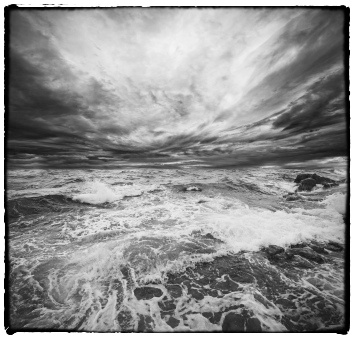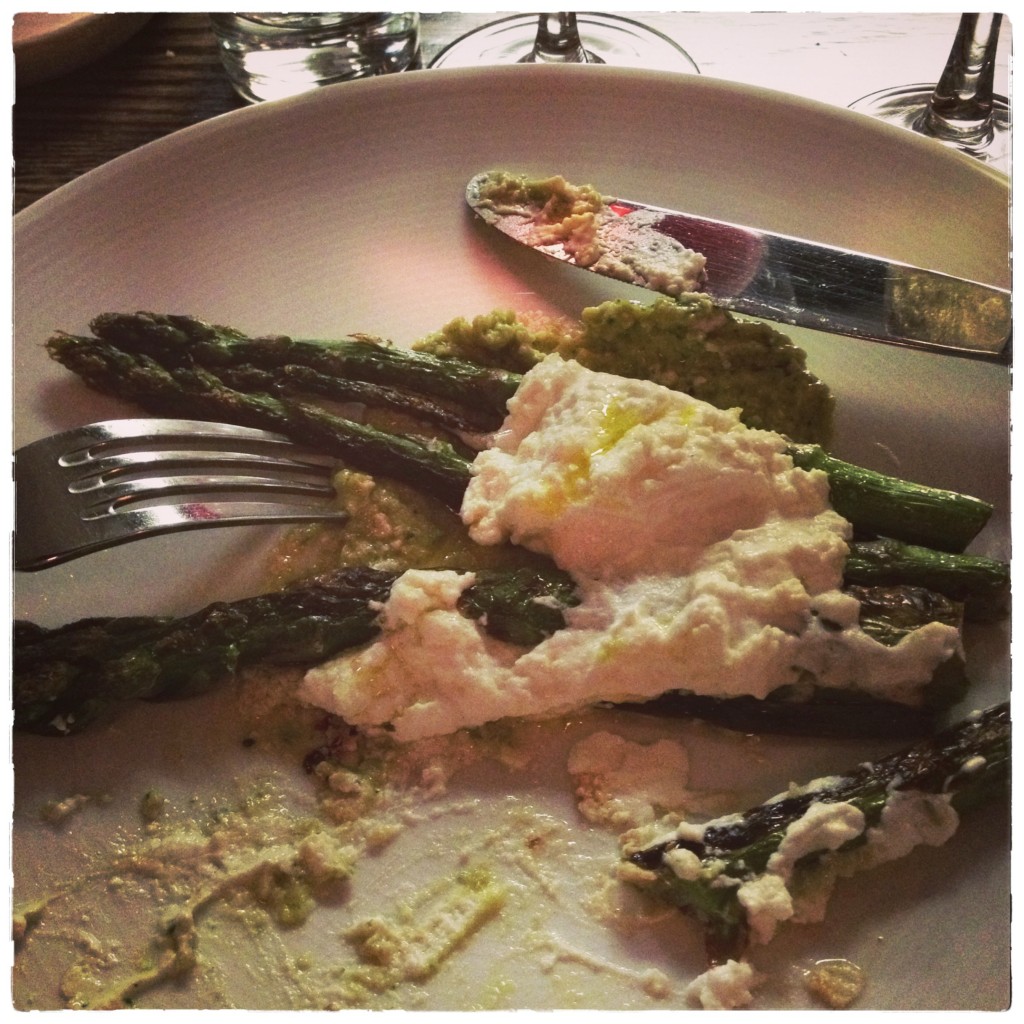My mother picked me up at my Manhattan office the other day so that I could take her out to lunch at a nearby faux trattoria — the kind of place that attempts to be Roman in its studied culinary insouciance, but succeeds only in doing things that Romans would actually never do, like forgetting to blanch their flowering rapini, or undercooking their eggplant, or dressing their chicory with too much acid. Lunch was pungent and biting, and when my mother stared at my head over our two iced coffees served in cheap Barolo glasses and asked if others had also noticed how white my hair appeared to suddenly be getting in spots when the light catches it just right, a knot caught in my throat and I couldn’t answer without crying, like a child; I choked on the bitterness of the meal.
Astrologically-speaking, this month was supposed to be a twice-in-a-lifetime alignment of planets and stars resulting in a fabulous period of great promise and hope fulfilled, at least for Cancerians; it was, a writer friend reminded me, also the plaiting together of three, count ’em, three, water signs coupled with a retrograde Mercury, and so when Susan and I — both of us Cancerians and me a double water sign — came home from work one night to find that a lightning strike had blown out the electrical panel controlling our well pump and the flow of water into the house, it sort of made sense, if you believe in this kind of thing. I used to question it, but then large swathes of my friends started complaining of the same sorts of water-related problems: flooded basements, burst pipes, garden hoses sliced by mowers, full water glasses dumped during dinner parties, cell phones dropped into toilets, too many tears shed out of the blue and for no reason beyond the bitter tone of conversation.
The fact of water has been everywhere; first, it rained and rained for weeks on end, at times violently. Our local streams and rivers flooded, our gardens exploded with weeds, and foot-long worms slithered out of the earth and into the streets to avoid drowning, only to be flattened by cars; seeking safety, they found it for just a moment before getting nailed when they were looking the other way. Then, when the rains stopped and we all stepped outside to see the sun, the heat came — relentless, steaming, 100+ degree heat that made it hard to breathe, that made the world feel like the inside of a dishwasher stopped mid-cycle. I felt wobbly and unmoored, like I was on a ship in rough, crazy water.
Like I was drowning.
This has been a season of relentless discomfort that’s not so easy to write about; it can be tedious and kvetchy, so I thought instead about writing a summertime-joyful piece ending in a recipe for happy salad. But this month — these last few months — have been anything but happy salad. I’ve looked for safety and peace, like the worms, and found it for a minute — a split second of calm — before getting mashed by something else running me over from another direction. I’ve looked for sun and blue sky after the deluge, and it’s been hot as Hades. Like my old friend David Rakoff used to say, Don’t get too comfortable.
Susan’s mother, who is in her nineties, hasn’t been well now for a while; right before my book tour for Poor Man’s Feast, she’d had one in what the doctors think was probably a number of heart attacks. Since early March, there has been a passel of caregivers: the first one was taken out of the house in an ambulance (an attack of Meniere’s Disease set off by stress). The second was fired by Susan’s mother because she thought she’d be better off without her. That spawned a predictable and immediate downhill slide that resulted in a third caregiver being hired and, on occasion, nearly wrestled to the ground by my mother-in-law, who wants the car keys even though they’re not the real car keys, which we have replaced with other, non-working ones. There have been constant fits of pique; unpredictable bouts of hysteria; multiple phone calls involving cardiologists, geriatricians, social workers, visiting nurses, cousins, and the nice police officer who lives next door. There has been a serious leg gash because, at 95, my mother-in-law had to accompany the furnace man down the stairs.
The basement stairs.
So this is our life right now, amidst the relentless rains and oppressive heat and bitterness and an exploding well pump and my mother’s pointed indication that I really need to have my hair colored, soon: a nonstop marathon, from spark to flame, from fire to cinder. We’re extinguishing what we can, breathing when we’re able, sleeping if we have time, commuting five hours a day, trying to keep ourselves healthy and our own lives moving forward with our work — our book designing and cooking and editing and my writing my next book; we’re trying to cope with the fact that my father’s sister, my beloved aunt, is also 95 and we haven’t seen her in ages, my cousin Mishka had a little boy who we haven’t as yet met, and my stepmom continues to battle lymphoma. My mother needs and demands our attention and grows sullen and pouty when she doesn’t get it; our conversation grows bitter and stilted. We miss our friends; we miss our family. Some people in our lives angrily accuse us of abandoning them, when they have no sense of how deep our love for them really is. And we miss the feisty, energetic, run-circles-around-us woman who is my partner’s mother, and who is, as Doris Grumbach once described it, coming in to the end zone, kicking and screaming and fighting the whole way, god bless her.
Susan and I both had milestone birthdays this year — me in late June; she in early July — during which we stared off into the distance, depleted, angry, exhausted, weepy, needing a break (even a brief one). The only thing Susan wanted to do on her birthday was play golf at her favorite course in northern Connecticut; the hope of a peaceful three hour sliver of a day — one out of 365 of them — made her smile. So I reserved a tee time, we played three great holes, and then the thunder roared and the lightning crackled and the skies opened up, as if on cue, and we were called off the course.
Crazy water; tears of ironic bemusement, of hunger for respite, and hunger for sleep.
I keep thinking that there must be a reason for all this exhaustion and bitterness and prolonged grief, like Anne Lamott once said, after a year when everything in her life and the lives of the people she loved went wrong and started to break, right around the time that the great rains of El Nino began:
Indeed. I’ll be waiting.
Crazy Water
(Adapted from Crazy Water, Pickled Lemons by Diana Henry)
The problem with feeling completely bent out of shape and undone is that it’s easy to forget to eat — at least for me. If things are particularly gnarly, I often don’t even have the energy to cook — a pox on me! — which really is the last place I want to be when I need emotional and physical nourishment. When I get to that stage, I want food that’s comforting and easy and kind: poached fish, tender-cooked vegetables, mild Mediterranean flavors all fit the bill perfectly. I’d been making versions of this dish for years and never knew that it had an official name until I bought Diana Henry’s wonderful Crazy Water, Pickled Lemons, while I was in Seattle on tour for Poor Man’s Feast. Originating on the Amalfi coast (and called Acqua Pazza in Italian), this gorgeous dish is really too light to be called a stew, and too flavorful to be called a poach, but it contains elements of both cooking methods. In her recipe, Diana calls for very fresh sea bass; I’ve recently become a huge fan of black sea bass, so if you can find it, use it. If not, halibut or another similar firm-fleshed white fish will work just as well.
Serves 2-3
1/2 small bunch flat leaf parsley, stems and leaves separated
4 large fresh plum tomatoes, seeded and coarsely chopped (use canned, drained San Marzanos off-season)
1 dried red chile
2 garlic cloves, coarsely chopped
5 ounces dry white wine
7 ounces fresh fish stock or water
2 lbs firm-fleshed white fish, whole or filet (sea bass, black sea bass, halibut are all suitable)*
2 slices day-old baguette, toasted and rubbed with a garlic clove
excellent quality extra virgin olive oil
Tie together the parsley stalks using kitchen twine; set aside the parsley leaves. In the bottom of a medium non-reactive pan (I like to use a deep, straight-sided stainless steel saute pan), combine the parsley stems, tomatoes, chile, garlic cloves, white wine, and fish stock or water; set the pan over medium heat and bring its contents to a simmer, and cook for 10 minutes, uncovered.
Carefully add the fish to the pan, cover, and simmer for about 20 minutes. If using whole fish on the bone, check to see if its done by looking at the meat nearest the bone; if it’s white, it’s done–if it’s translucent, it needs more time. If using thick filets, slide a paring knife into the meat and carefully take a peek.
When the fish is done, remove it to a platter and keep it warm under loosely draped foil; remove the parsley stalks from the pan and discard them. Increase the heat to a fast simmer and reduce the cooking liquid by about a quarter. Coarsely chop the parsley leaves, add them to the pan, and continue to cook for another few minutes.
Set a slice of baguette in the bottom of each individual soup plate; top with the fish, and then ladle with a healthy amount of the broth. Drizzle with a bit of olive oil and serve immediately.







